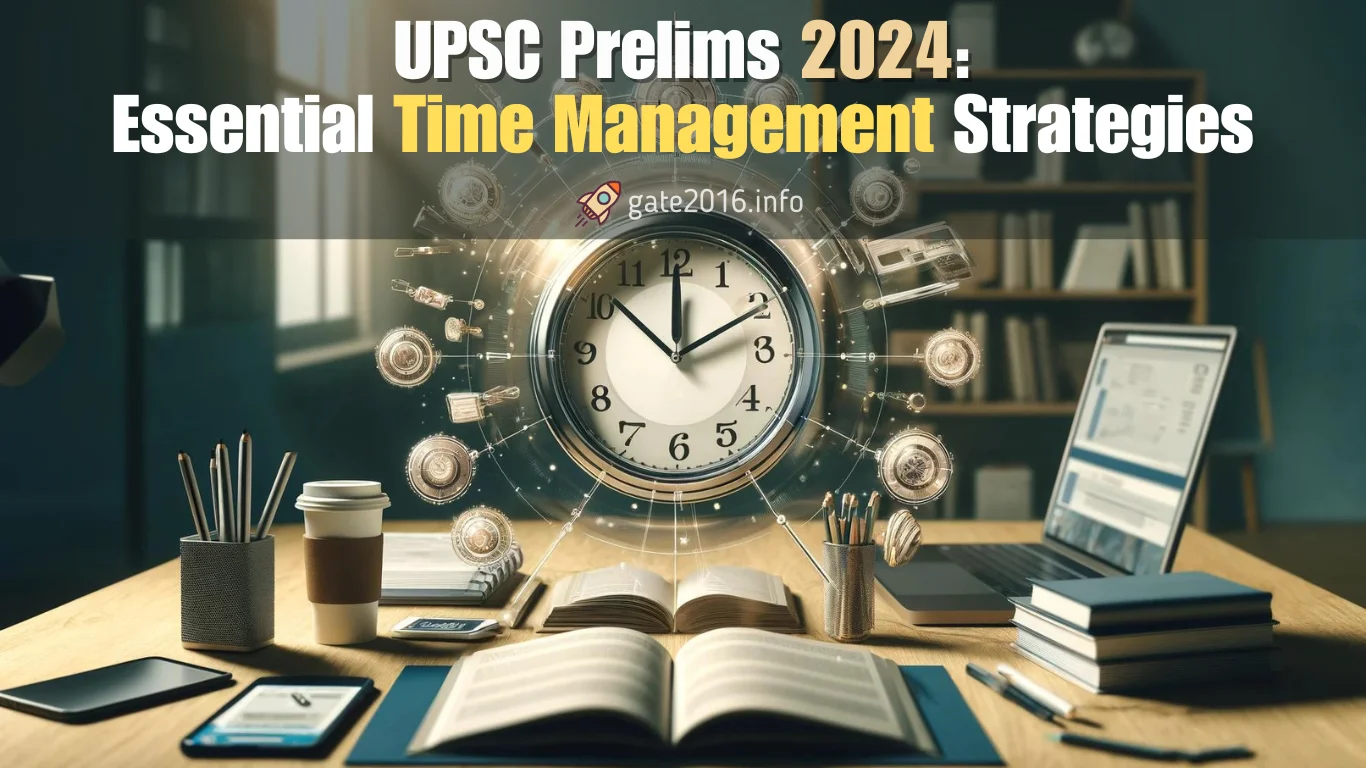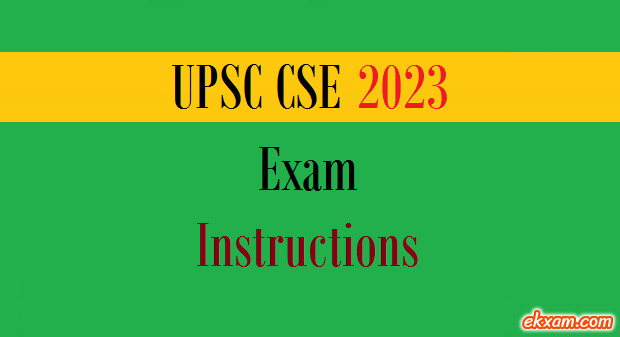Advertisements
Ratings

UPSC Prelims 2024 – With the UPSC Civil Services Prelims 2024 approaching on June 16, time management is becoming an increasingly crucial skill.
In the final days leading up to the exam, candidates need to balance intensive revision and practice sessions efficiently.
Here through this guide provides strategies for effective time management during both preparation and the actual exam day to maximize your scoring potential.
Contents
Strategies for UPSC Prelims Exam Time Management
- Developing a Realistic Timetable: Creating a daily study schedule that fits your personal commitments is essential, especially for working professionals who may have limited study hours. Aim for at least 8 hours of study daily, dedicating about half of this time to taking mock tests several times a week to simulate exam conditions.
- Setting Daily Targets: Establishing daily goals helps maintain focus and motivation. Completing these targets provides a sense of achievement and ensures you are consistently progressing in your preparation.
- Effective Use of Mock Tests: Participating in a reliable mock test series is crucial. Mock tests help identify your strengths and weaknesses, allowing you to adjust your study strategy accordingly. For example, Physics Wallah offers specialized GS and CSAT test series that are highly beneficial.
- Dedicated Revision Blocks: Regular revision is critical for retaining information and recalling it during the exam. Plan to review material following each mock test session to reinforce learning and improve performance in areas where scores are lower.
- Incorporating Feedback: Actively seek and apply feedback from mentors to enhance your preparation strategy. Focus especially on strengthening weaker areas to ensure a well-rounded performance across all subjects.
- Taking Breaks: Short breaks are vital for mental refreshment and maintaining peak study efficiency. If performance plateaus, reassess your study methods and consult with mentors for advice on improvement.
UPSC Prelims Exam Day Time Management Tips
- Scanning the Question Paper: Begin by quickly reviewing the entire question paper to identify easier sections and gauge overall difficulty. This strategy helps in effectively prioritizing questions.
- Prioritizing Questions: Tackle the easiest questions first to build confidence and establish a good rhythm early in the session. For instance, if your strongest area is polity, start with those questions.
- Managing Time Per Question: With only 120 minutes available for each paper, aim to spend about 1 to 1.5 minutes per question on the GS paper and 1.5 to 2 minutes on the CSAT paper.
- Dealing with Tough Questions: Avoid spending too much time on difficult questions at the start. Mark them for review and return to them if time permits. Remember, all questions carry equal marks and there is a penalty for incorrect answers.
- Time Allocation in CSAT: Plan your time in the CSAT paper to allow for adequate attention to each section. For example, allocate the last 40-45 minutes to tackle reading comprehension, starting with reasoning and mathematical questions.
- Keeping an Eye on the Clock: Regularly check the clock to manage your progress through the paper effectively. Ensure you leave enough time to accurately fill out the OMR sheet.
- Accurate OMR Filling: Carefully fill in the OMR sheet, double-checking each entry to avoid costly mistakes. Use a black ballpoint pen as required by the exam guidelines.
Importance of Time Management in UPSC Prelims Exam
Effective time management is crucial for dealing with the increasing difficulty and dense question sets of the UPSC Prelims.
Good time management not only helps cover the extensive syllabus thoroughly but also keeps you composed during the exam, enhancing your ability to perform well under pressure.
To further hone these skills, consider enrolling in specialized courses offered by institutions like Physics Wallah, where experienced mentors provide targeted guidance and strategies to succeed in the UPSC Prelims.
By mastering these time management techniques, candidates can approach the exam with confidence, improving their chances of success.
UPSC Prelims Exam Time Management Tips: Top 5 FAQs
FAQ 1: How much time should I allocate to each question in the UPSC Prelims?
Answer: For the General Studies (GS) paper, which comprises 100 questions, aim to spend approximately 1 to 1.5 minutes per question. For the Civil Services Aptitude Test (CSAT), which contains 80 questions, allocate around 1.5 to 2 minutes per question. This distribution helps ensure you have enough time to attempt all questions while allowing some buffer for review.
FAQ 2: Is it better to attempt the easy questions first or to follow the sequence of the question paper?
Answer: It’s generally more effective to start with the questions that you find easiest. This strategy not only builds confidence but also ensures that you secure marks quickly. After answering the easier questions, you can then return to tackle the more difficult ones, maximizing your overall score.
FAQ 3: How frequently should I take mock tests during my UPSC Prelims preparation?
Answer: Taking mock tests is a critical part of your preparation. In the final months leading up to the exam, try to take at least three to four mock tests per week. This helps you get accustomed to the exam’s format and timing, and it also allows you to assess and refine your time management strategies under simulated conditions.
FAQ 4: What should I do if I get stuck on a question during the exam?
Answer: If you find yourself stuck on a question, it’s advisable to mark it for review and move on. Spending too much time on one question can disrupt your overall time management plan. Returning to challenging questions after completing the easier ones might give you a new perspective or additional time to think through them.
FAQ 5: How can I manage stress and avoid panic during the exam due to time pressure?
Answer: Effective stress management starts well before the exam day. Regular practice with timed mock tests can help reduce anxiety by familiarizing you with the pressure of working within a limited timeframe. During the exam, take brief moments to breathe deeply and refocus if you feel overwhelmed. Staying calm and maintaining a steady pace are key to managing time efficiently during the test.
Related Posts
- How to Prepare for UPSC Prelims in 2 Years: A Comprehensive Study Guide
- IES 2024 Vacancy – Branch-wise and Category-wise Distribution
- IES 2023 Vacancy – Branch-wise and Category-wise Distribution
- IES Vacancy 2022 – Branch wise, Category wise
Related Tags
Upsc prelims 2024 essential time management strategies vision, Upsc prelims 2024 essential time management strategies pdf, Upsc prelims 2024 essential time management strategies book, 3 months strategy for upsc prelims 2024, upsc mains time management, time limit for 15 marks question in upsc, time management skills for upsc, can i prepare for upsc prelims in 3 months







